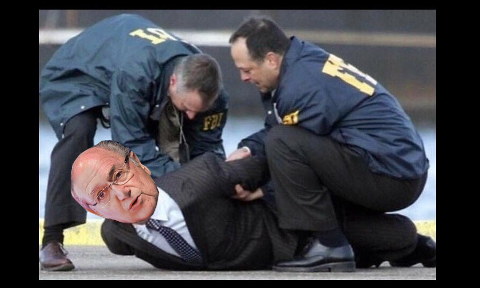

"Maybe they just wait for Battistelli to leave. He has less than 2.5 months left. Then a fellow Frenchman, whose job application he promoted, will inherit the penthouse with the pub."We are constantly being told and reminded by people who are familiar with these matters that the successor (Campinos) won't change anything. All evidence we've seen so far suggests so too. In fact, we expect Battistelli to still participate remotely (through Campinos). Battistelli is not retiring, only hibernating in CEIPI (swapping a chair with Campinos). As a reminder see the following older posts:
"All these cowards from large law firms never want to talk about EPO corruption."There's another element of complicity in the mix.
All these cowards from large law firms never want to talk about EPO corruption. Very few of them ever did. We could count them on one hand. Complicity by oversight? Apathy? Cowardice?
"The Enlarged Board of Appeal and other Boards are not enjoying any independence upon which sound judgments are to be based."Look at EPO news these days. Absolutely nothing about scandals. It's like scandals never happened. They don't matter. Not even multi-euro 'heists' that are about to happen within weeks. The media, which is paid to participate, isn't interested in journalism but in pure PR. Battistelli pays them for it (at the expense of the EPO of course).
Bardehle Pagenberg's Rudolf Teschemacher has just written about "recent developments in EPO case law," but what about the Boards upon which he bases his entire article? The Enlarged Board of Appeal and other Boards are not enjoying any independence upon which sound judgments are to be based. It's a massive crisis. The whole EPC is now an ignored piece of paper. EPO is therefore defunct and debased, technically detached from its very founding document. This is what Teschemacher had to say:
Recent decisions passed by three different instances of the EPO have significant effects on the patentability of inventions under European patent law. All of them concerned the validity of patents to be assessed in opposition proceedings. Applicants should be aware of the consequences of these decisions. Avoidable mistakes when filing a European patent application and even previously may later result in the loss of the patent.
A lower level of appeal fee of €1880 will apply for appeals filed by natural persons and entities referred to in Rule 6(4) EPC, i.e. small and medium-sized enterprises, non-profit organisations, universities and public research organisations. An increased appeal fee of €2255 will apply to all other entities.
"It's designed to encourage focus on the 'patent-granting machine' rather than quality assurance."Last but not least, hours ago came out this article from August Debouzy (Gregoire Desrousseaux, François Pochart and Geoffroy Thill). They boast about PACE-type programmes and contrariwise slowdowns of the process.
The main problem is that the EPO is running out of work, out of skills, and out of reputation. Not that it bothers law firms. They cash in on trouble. To quote their conclusions:
The new optional postponement procedure of the examination goes against the decreasing duration of the search, examination and opposition procedures initiated during the last few years in the EPO. However, the procedure reveals manifold advantages for applicants. They could maintain a pending application with a broad scope of protection for 3 more years while keeping the opportunity to request an accelerated examination at any time. The applicants shall be able to accelerate or delay the granting procedure of their patents.
[PDF], when asked whether "António Campinos is the right person to solve the EPO’s problems" only 14.7% of the respondents (patent professionals) said "Yes". It's just slightly more than one in seven! ⬆